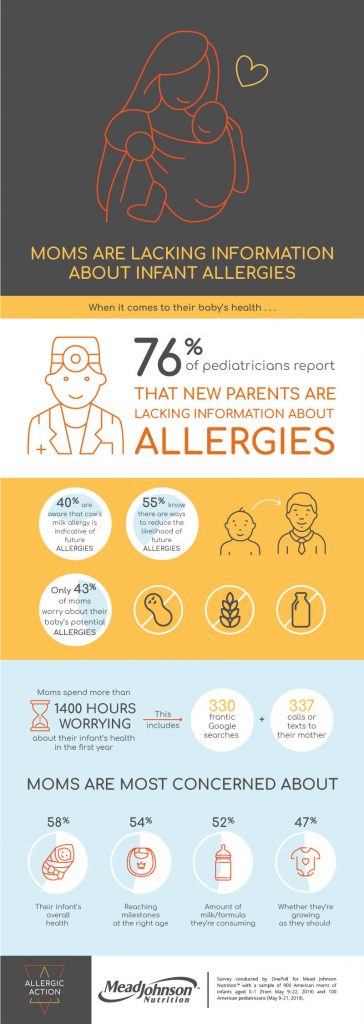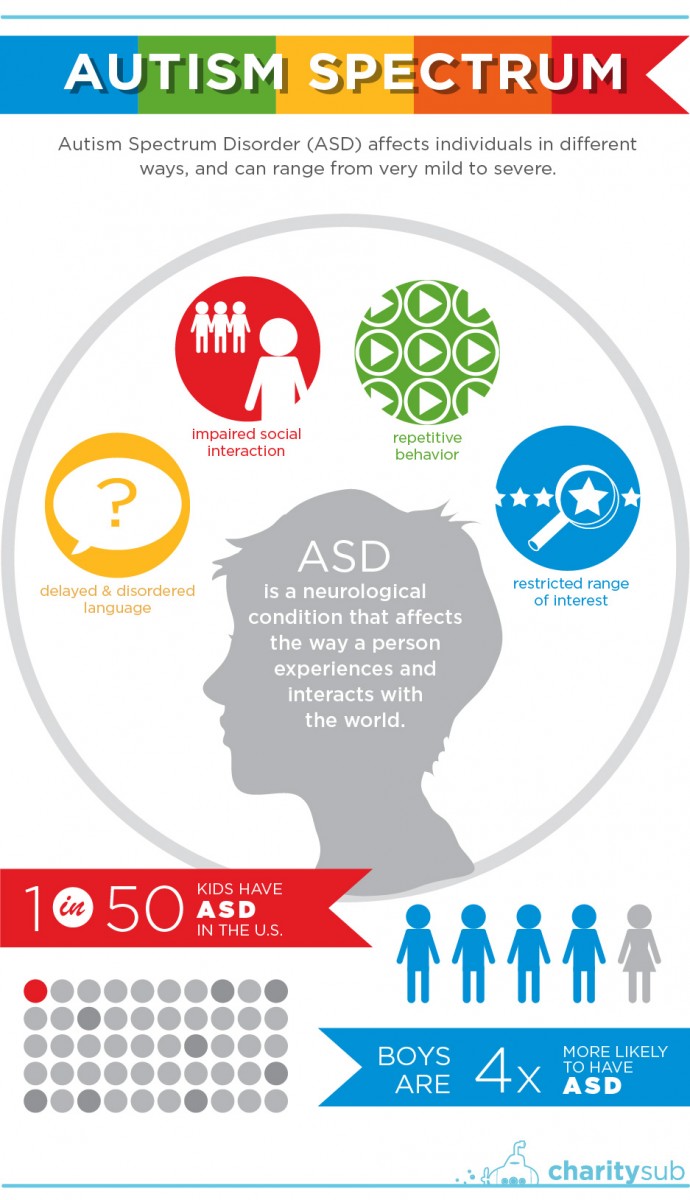Category: News & Events

Introducing LACI: Learning Advanced through Collaborative Initiatives
Published by Feeding Matters on Sep 06, 2019
- Therapists will be able to utilize a local network for collaboration and expertise/advice.
- Referrals to the proper healthcare provider will be made more accurately and effectively, thereby decreasing waitlists for medically fragile children.
- Enhanced collaboration through a highly skilled cohort of medical professionals will enable enhanced care.
- Licensed OTR or SLP in good standing
- Currently or previously employed in a pediatric setting
- Strong commitment to professional growth and community partnering
- Statement of commitment: minimum of 4 hours per month to be allocated to collaborative goals
- Attend an in-person LACI launch meeting on October 22, 2019 and LACI conclusion meeting on April 21, 2020 from 4-6pm.
- Attend monthly 1-2-hour virtual LACI meetings for the 6-month cohort period: meetings to be held November 2019-March 2020.
- Engage in at least 2 hours of person-to-person collaboration or self-directed learning
- Contribute related resources and insight on the curriculum topic monthly via the virtual platform
- Complete feedback surveys as applicable
Open Call for Abstracts: PFD Research Small Grant Program
Published by Feeding Matters on Sep 02, 2019
- Scientific Reviews – such as systematic, meta-analysis, or scoping; addressing assessment, management, and/or treatment approaches for domains of PFD: medical, nutrition, feeding skill, and psychosocial. The following list offers review suggestions:
- Assessments used in the PFD field (tools, clinician assessments, and/or tests)
- Therapeutic outcomes and/or approaches for PFD treatment
- Resource utilization or economic studies – cost of PFD from the perspective of the healthcare system and/or the family.
Please consider applying using the information below…
General Guidelines and Eligibility:- Funding up to $5,000 for one year from date of award
- No indirect costs or overhead costs
- United States residents
- Methodology must follow PRISMA guidelines
- Open call for abstracts – Friday, September 27, 2019 (by 11:59pm Pacific Time) *new deadline*
- All dates subject to change due to open call deadline extension
- Request for full proposals to be sent to applicants– Wednesday, October 16, 2019
- Full proposal application due – Friday, December 6, 2019 (by 11:59pm Pacific Time)
- Funding and projects begin – Early 2020
- Contact information (name, email, phone number, and mailing address)
- Qualifications & credentials
- Supervising academic mentor (if applicable)
- Funding priority requesting
- Abstract (400-600 words)
- Background
- Research question
- Methodology
- Timeline
For additional information and guidelines, please download the funding guidelines below.
Infant Allergy Awareness Month
Published by Feeding Matters on Jul 18, 2019
 Food allergies in infants and children are becoming more prevalent. A new survey of 900 US moms (of children aged 0-1) and 100 US pediatricians took a look at the issue.
WHEN IT COMES TO THEIR INFANTS’ HEALTH, MOMS ARE WORRIED ABOUT . . .
58% – Their overall health
54% – If they’re reaching milestones at the right age
52% – The amount of milk/formula and/or food they’re consuming
47% – If they’re growing as they should
47% – Their nutritional intake (e.g. vitamins, supplements)
43% – If they have any allergies
41% – The amount of sleep they’re getting
40% – If I’m bonding enough with them
36% – The quality of sleep they’re getting
36% – What their different cries meant
HEALTH ISSUES MOMS HAVE EXPERIENCED IN THEIR INFANTS
54% – Diaper rash
41% – Fever
36% – Cradle cap
34% – Baby acne
32% – Vomiting
30% – Issues breastfeeding
25% – Ear infection
23% – Colic
21% – Allergies
11% – Swollen belly
With 76% of pediatricians reporting that new parents are lacking information about allergies, it’s necessary to stay up-to-date on current treatment and diagnosis information. Health care professionals can learn about the symptoms, diagnoses, and management of food allergies at PNCE.org/food-allergies.
Food allergies in infants and children are becoming more prevalent. A new survey of 900 US moms (of children aged 0-1) and 100 US pediatricians took a look at the issue.
WHEN IT COMES TO THEIR INFANTS’ HEALTH, MOMS ARE WORRIED ABOUT . . .
58% – Their overall health
54% – If they’re reaching milestones at the right age
52% – The amount of milk/formula and/or food they’re consuming
47% – If they’re growing as they should
47% – Their nutritional intake (e.g. vitamins, supplements)
43% – If they have any allergies
41% – The amount of sleep they’re getting
40% – If I’m bonding enough with them
36% – The quality of sleep they’re getting
36% – What their different cries meant
HEALTH ISSUES MOMS HAVE EXPERIENCED IN THEIR INFANTS
54% – Diaper rash
41% – Fever
36% – Cradle cap
34% – Baby acne
32% – Vomiting
30% – Issues breastfeeding
25% – Ear infection
23% – Colic
21% – Allergies
11% – Swollen belly
With 76% of pediatricians reporting that new parents are lacking information about allergies, it’s necessary to stay up-to-date on current treatment and diagnosis information. Health care professionals can learn about the symptoms, diagnoses, and management of food allergies at PNCE.org/food-allergies. 
Register Now: 2019 Virtual Town Halls
Published by Feeding Matters on May 21, 2019
TOGETHER WE CAN DO SO MUCH
Published by Debbie Simons on Feb 27, 2018
“Alone we can do so little; together we can do so much.” –Helen Keller
Growth is something that most nonprofits strive for, regardless of their size. Small nonprofits want to get big, big nonprofits want to get bigger. Let’s face it, every organization has to grow (at least a little bit) every year in order to accommodate the increased expenses that develop over time. But good organizations do not only grow to meet and exceed the needs of their clients, they take it one step further – creating system changes that directly affect the lives of those they serve.
As many non-profits who are fortunate enough to experience some success soon discover, just because you have arrived doesn’t mean you can rest on your laurels! Growing doesn’t mean just grappling with the same challenges on a larger scale. It means understanding, adjusting to, and managing a whole new set of challenges as well as new opportunities.
Organizational growth requires a lot of strategic planning and effort. During my career I have been fortunate to spend time in both corporate America and the not-for-profit world, which helped prepare me for my role of chief development officer at Feeding Matters.
Since taking on this new role, I’ve had the pleasure to get to know this vibrant, energized group of people who are contributing, at the highest levels, to this thriving organization. And while I am blessed to have three healthy children, I am reminded every day of how many celebrations and life’s pleasures revolve around food and how much I take for granted being able to easily share a meal with my family each and every night.
As all great organizations before us would attest, there is a time when all the stars start align and goals that felt like dreams start to become reality. For Feeding Matters that time is now. For the first time we are within reach of seeing Pediatric Feeding Disorder get its own standalone diagnose. Once that dream becomes a reality it will unlock doors to do much more: needed research, collaboration, insurance reimbursements for families, an education path for healthcare professionals, and system changes for families with children who suffer to eat every day.
Like any other great and lofty goal, it takes time, resources, and funding to cross the finish line. This year Feeding Matters will embark on a three-year, $3 million dollar campaign to ensure our goals do in fact become a reality.
It only takes a moment to make a true human connection, a connection that can generate good will, energy, and positive bonds. Each day we are given dozens of opportunities to give our time, our talent or our treasure to those in need. This year, more than ever, we are asking our community to get behind our mission and help us further advances in pediatric feeding disorder by accelerating identification, igniting research, and promoting collaborative care for the millions of children and families living with pediatric feeding disorder.
To help support Feeding Matters, please contact Debbie Simons at dsimons@feedingmatters.org.
FEEDING MATTERS NAMED BIZ BASH BENEFICIARY
Published by Feeding Matters on Mar 23, 2018
Have you heard? Biz Bash, CoBiz Financial’s signature event, has selected Feeding Matters as a 2018-2019 beneficiary!
Known for putting the FUN into FUNdraising, Biz Bash combines music, mingling, a unique silent auction, and delicious food all to raise money for a great cause. By selecting Feeding Matters, Biz Bash will provide immediate and long-term positive impact for children and families suffering from the devastating physical, emotional, and financial effects of pediatric feeding disorder.

For 11 years, Biz Bash has brought the who’s who of American music history to Arizona, including The Gin Blossoms, America, Lou Gramm, Starship, Eddie Money, WAR and the Pointer Sisters. In 2017, Biz Bash featuring Dennis De Young: The Music of Styx, generated $156,000 for its Arizona beneficiaries, A New Leaf and New Pathways for Youth.
Since launching in 2001, Biz Bash has distributed more than $5.5 million to Arizona and Colorado not-for-profits reaching children and families in underserved communities.
We look forward to sharing more as details are finalized for this year’s date and headlining entertainment… So stay tuned!
NATIONAL AUTISM AWARENESS MONTH
Published by Feeding Matters on Apr 02, 2018
April is Autism Spectrum Disorder (ASD) Awareness Month. Started nearly a quarter century ago by the Autism Society, National Autism Awareness Month is “a nationwide effort to promote autism awareness, inclusion and self-determination for all, and assure that each person with ASD is provided the opportunity to achieve the highest possible quality of life.”
A neurological condition, ASD affects the way a person experiences and interacts with the world. With a national prevalence estimated at 1 in 50 children, ASD is one of more than 300 conditions that put children at a higher risk for pediatric feeding disorder.

STUDYING THE ECONOMIC BURDEN ON FAMILIES
Published by Feeding Matters on Apr 10, 2018
Over the years, Feeding Matters has witnessed many insured families spend hundreds, and sometimes thousands, of dollars out of pocket to cover non reimbursed costs related to their child’s pediatric feeding disorder. To fully and accurately capture the devastating financial burden related to pediatric feeding disorder, Feeding Matters began collecting data and testimonials from our families.
Determine the cost associated with out of pocket expenses for families. In order to further investigate the out of pocket expenses for families, Feeding Matters collaborated with FirstEval to create an Economic Impact Survey to collect data around the child and the family, including medical costs, supplies, lost income, child care, travel, education, time, parent/caregiver health, psychological impact, and demographic information related to pediatric feeding disorder. The results showed families are spending money on extra childcare, specialty foods, and travel to therapists to receive optimal care. This significant expenditure has drained many family’s bank accounts.
“We sold our home, moved to a rental house and ultimately had to file bankruptcy to be able to afford for me to work part time rather than full time and to afford my child’s weekly therapy visits. Even though I have a bachelors degree and professional career, I took a job as a nanny (making significantly less than I made previously) so that I could have the flexibility to take my child to therapy and to stay home with him when he was too sick to go to school. The pressure of trying to manage my full time job while he was sick and had so many appointments was simply too much for me.”Obtain data that will be used to help change the system of care and coverage around pediatric feeding disorder. The costs incurred by families navigating pediatric feeding disorder are not well understood by the reimbursement community and this has prevented them from being covered by most insurance companies. The data collected from the survey will be used to inform healthcare professionals and insurance companies of the financial burden of pediatric feeding disorder and influence the system changes that need to occur in order to obtain coverage for families. Feeding Matters is anxious to lead the way in helping families get the coverage they need.
It’s more than emotional stress that parents endure when their child has pediatric feeding disorder Money and finances continue to be top stressors for families managing pediatric feeding disorder. That stress, coupled with the emotional stress that families endure can be detrimental to one’s health. Families have indicated that they have heightened anxiety, difficulties in their relationship, and depression due to the financial stress of caring for a child with pediatric feeding disorder. When a parent is feeling these emotions, it is likely that their child will feel this too.
“I am killing myself trying to work full-time to support my daughter as a single parent. My parents had to move from out of state to help, and even with them here I am exhausted from trying to coordinate supplies, therapy, and her care while maintaining full-time employment. I want to quit and give up every day, but I can’t. It is maddening.”
Feeding Matters is currently looking at the findings and determining next steps for sharing this with the community.
Update: View more information here.
5 FEEDING MATTERS’ VIRTUAL WORKSHOPS YOU CAN WATCH RIGHT NOW
Published by Feeding Matters on May 02, 2018
Feeding Matters is proud to offer families and professionals on-demand workshops through our online Knowledge Center. These workshops provide tips and tools on how to efficiently manage pediatric feeding disorder and other related, complex issues, including:
-
Common Feeding Hurdles in the Weeks and Months after Leaving the NICU
In this 60 minute virtual workshop, Dr. Pamela Dodrill, PhD, CCC-SLP, presents about what NICU families can expect when having a child who has pediatric feeding disorder. This workshop is for families who have children with pediatric feeding disorder and the healthcare professionals who care for them. Dr. Dodrill has specialized in working with infants and children with feeding disorders for over 15 years. Pamela has a number of publications in this area, regularly presents at international scientific conferences, and teaches courses and workshops on managing pediatric feeding problems for students and practicing health professionals.
-
Fostering Collaborative Care: Parent and Provider Perspectives
Listen to professionals from a feeding clinic talk about how the ICFQ can be used as an engagement tool to help identify potential pediatric feeding disorder and hear from a parent’s perspective on life after the NICU. From the provider perspective, Anais Cook, Caroline Duong and Dr. Andrew Chu join us from Texas Children’s Hospital Feeding Clinic. And with a very personal perspective, Ashley Collier participates in the conversation to discuss her journey with her daughter Macie, who was a 33 week preemie and struggled in the NICU to master suck/swallow/breathe.
-
Navigating the system: Coordinating Your Child’s Care
overwhelming, the appointments can be endless, and the medications numerous and constantly changing. Navigating your way through doctors, programs, food, medications, and medical procedures is usually left in the hands of the primary caregiver “the parent.” Shannon Goldwater has over 14 years of experience with her triplets. This workshop will provide tips and tools on how to efficiently manage your child’s complex needs.
-
Planting a Seed Towards Self-Care
In the event of an airplane emergency, one of the first rules they tell you to follow for your safety is to put your own oxygen mask on first before you assist anyone else. Because only when we help ourselves, do we have the ability to effectively help others. Often as caregivers this concept is difficult to practice. There is a mentality that you don’t have time to care for yourself and that your child’s care is more important than your own. This workshop will debunk misconceptions surrounding self-care and provide participants strategies for how to take time to nurture yourself in the midst of your busy schedule. It will be led by Heather Joy Magdelano, the founder of Journey into Joy, and mother of two children born 21 months apart with the same rare genetic syndrome and as a result both have struggled with feeding.
-
Setting Up For Feeding Success After the NICU
The Feeding Matters Workshop, “Setting Up for Success After the NICU” presented by Dr. Kay Toomey is sure to help parents, caretakers and professionals living and working with children being discharged from the NICU to be as successful of eaters as possible. Dr. Toomey discusses how very complicated feeding babies is, as well as when and why children may begin to struggle with their feedings/eating across the first 2-3 years of their lives. At each developmental time point, Dr. Toomey suggests strategies for Setting Up Your Child For Success in order to begin them on the path of developing a healthy, lifelong relationship with food.
Look for a brand new virtual workshop coming in late May 2018! In Neonatal Nutrition: Improving Short and Long-Term Outcomes, Matthew Abrams, MD will discuss interventions from the moment babies are admitted to the NICU to their nutrition after discharge to optimize growth and nutrition and long term neurodevelopmental outcomes. Although we are still in the infancy of truly understanding the complexity of nutritional components and how to best provide them to premature infants, we have reasonable data that indicates that better nutrition results in better outcomes and less morbidities short and long term.
NATIONAL EOSINOPHIL AWARENESS WEEK
Published by American Partnership for Eosinophilic Disorders on May 21, 2018
In recognition of National Eosinophil Awareness Week (NEAW), Feeding Matters welcomes guest contributor Mary Jo Strobel, executive director of American Partnership for Eosinophilic Disorders (APFED). A non-profit patient advocacy organization dedicated to patients and their families coping with eosinophil-associated diseases, APFED provides education and support services and funds peer-reviewed research through its Hope on the Horizon Research program. Mary Jo lives in Northern Virginia with her husband and two children. Her niece suffers from eosinophilic esophagitis.

This year, National Eosinophil Awareness Week (NEAW) is May 20-26. During this special week our patient community comes together to raise awareness of eosinophil-associated diseases and educate others about the impact of these conditions. Since being officially recognized by Congress in 2007, thanks to APFED’s advocacy efforts, NEAW has helped bring about a greater understanding of these rare, chronic, and emerging diseases.
Eosinophils are a type of white blood cell that play an important part of our immune system, helping us to fight off certain types of infections, such as parasites. Many different problems can cause high numbers of eosinophils in the blood including allergies (food and environmental), certain infections caused by parasites, eosinophil-associated gastrointestinal disorders, and other problems. When a person has elevated numbers of eosinophils in their digestive system, tissues, organs, and/or bloodstream, without a known cause, he or she may have an eosinophil-associated disease.
Eosinophilic gastrointestinal disorders (EGIDs) are distinct diseases affecting areas of the gastrointestinal tract: the esophagus, stomach, and small and/or large intestine. EGIDs are often driven by food triggers.
Symptoms of EGID may vary from one person to the next and may differ depending on age. Infants and toddlers often refuse their food or have trouble growing properly. School-age children may have recurring abdominal pain, trouble swallowing, or vomiting. Teens and adults will often experience difficulty swallowing or painful swallowing. Food may become stuck in their esophagus (impaction), causing a medical emergency.
Currently, there is no FDA-approved therapy to treat EGIDs. Symptoms are controlled by dietary restrictions and/or corticosteroids that are used off-label. Some patients have a severely restricted diet or must avoid the vast majority of foods and instead receive all of their nutrition from an elemental formula. Some patients are able to drink the formula, while others need a feeding tube.
Follow APFED all week as we continue to raise awareness for eosinophil-associated diseases and use hashtag #NEAW2018. We will also be posting giveaway offers and spearheading an action-oriented awareness campaigns on Facebook. Be sure to follow along!
* * *
If you have a child with pediatric feeding disorder, feeling overwhelmed is not unusual. Feeding Matters is committed to providing parents with the support and resources they need to deliver the best care to their children, including our parent-to-parent coaching program and on-demand knowledge center.
For more information or resources on eosinophil-associated diseases and the American Partnership for Eosinophilic Disorders, please visit apfed.org.